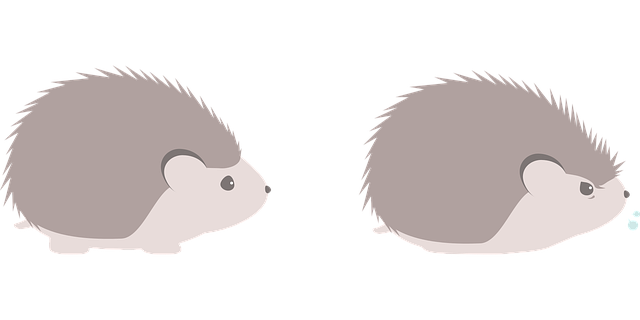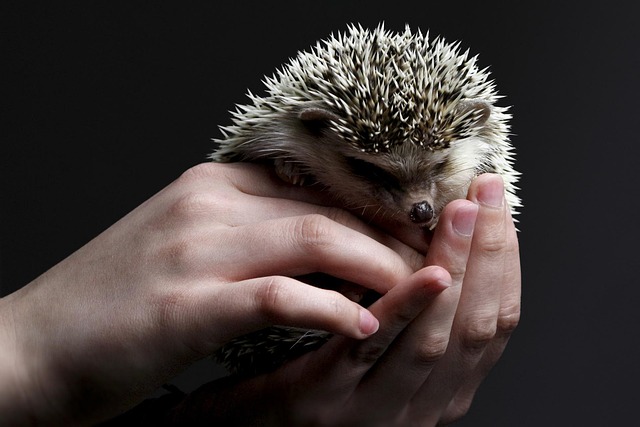Hedgehogs have gained popularity as unique exotic pets, captivating owners with their adorable appearance and quirky personalities. These small, spiny mammals offer a distinctive pet ownership experience that differs significantly from traditional cats and dogs. However, successful hedgehog ownership requires understanding their specific needs, behaviors, and care requirements.
Understanding Pet Hedgehogs

The most common pet hedgehog is the African Pygmy Hedgehog (Atelerix albiventris), which typically weighs 8-12 ounces and lives 3-8 years in captivity. Unlike their wild European cousins, these hedgehogs don’t hibernate, making them more suitable for domestic life. They’re solitary, nocturnal creatures that become active during evening hours.
Hedgehogs are naturally defensive animals that roll into a tight ball when threatened, exposing only their protective spines. With patience and gentle handling, most hedgehogs become comfortable with their owners, though they rarely show affection like traditional pets.
Housing Requirements
Cage Setup: Provide a spacious enclosure measuring at least 2×3 feet for floor space, with solid flooring to prevent foot injuries. Wire-bottom cages can cause bumblefoot, a painful bacterial infection. Include hiding spots, as hedgehogs need secure places to sleep during daylight hours.
Temperature Control: Maintain ambient temperature between 72-80°F (22-27°C). Hedgehogs are extremely sensitive to temperature fluctuations and may attempt hibernation if too cold, which can be fatal in captive animals. Use ceramic heat emitters or under-tank heaters, avoiding heat lamps that can cause dehydration.
Bedding and Accessories: Choose dust-free bedding like paper-based products or fleece liners. Avoid cedar or pine shavings, which can cause respiratory irritation. Provide an exercise wheel specifically designed for hedgehogs with solid running surfaces to prevent injuries.
Diet and Nutrition
Primary Diet: Feed high-quality dry cat food as the staple diet, choosing options with 30-35% protein and 10-15% fat content. Many commercial hedgehog foods are nutritionally inadequate, making premium cat food a better choice.
Treats and Supplements: Offer occasional treats including mealworms, crickets, cooked chicken, or small amounts of fruits and vegetables. Limit treats to 10% of total diet to prevent obesity. Avoid dairy products, nuts, seeds, and processed human foods.
Feeding Schedule: Adult hedgehogs typically eat 1-2 tablespoons of dry food daily, usually consuming most during nighttime hours. Provide fresh water in a shallow dish or bottle daily.
Health Considerations
Common Health Issues: Hedgehogs are prone to obesity, dental problems, mites, and respiratory infections. Watch for signs of illness including lethargy, loss of appetite, unusual discharge, or difficulty breathing. Wobbly Hedgehog Syndrome, a progressive neurological condition, affects some hedgehogs and has no cure.
Veterinary Care: Locate an exotic animal veterinarian before acquiring a hedgehog, as many traditional vets lack experience with these animals. Annual checkups help detect health issues early.
Behavior and Handling
Natural Behaviors: Hedgehogs are naturally curious but easily startled. They explore through scent and may anoint themselves with new smells, creating foamy saliva and spreading it on their spines – this is normal behavior, not illness.
Proper Handling: Allow new hedgehogs time to adjust before frequent handling. Support their body when picking them up, avoiding grabbing from above which triggers defensive responses. Most hedgehogs tolerate gentle petting along their sides once comfortable.
Legal Considerations
Check local and state laws before acquiring a hedgehog, as they’re illegal in some areas including California, Georgia, Hawaii, Pennsylvania, and Washington D.C. Some cities have specific ordinances prohibiting hedgehog ownership.
Social Needs

Unlike dogs or cats, hedgehogs don’t require companionship and actually prefer solitary living. Housing multiple hedgehogs together often leads to fighting and stress. They don’t form strong emotional bonds with owners but can recognize familiar people and routines.
Pros and Cons
Advantages: Quiet, relatively low-maintenance, unique appearance, don’t require large spaces, and interesting behaviors to observe.
Disadvantages: Nocturnal activity patterns, specific temperature requirements, expensive exotic veterinary care, limited social interaction, and shorter lifespans compared to traditional pets.
Conclusion
Hedgehogs can make fascinating pets for dedicated owners willing to meet their specialized needs. Success requires understanding their nocturnal nature, maintaining proper environmental conditions, and providing appropriate nutrition and veterinary care.
These unique animals aren’t suitable for everyone, particularly families with young children or those seeking cuddly, interactive pets. However, for patient owners who appreciate their distinctive characteristics and behaviors, hedgehogs offer a rewarding exotic pet experience.
Before committing to hedgehog ownership, thoroughly research their requirements, locate qualified veterinary care, and ensure you can provide consistent, long-term care for these special animals.

